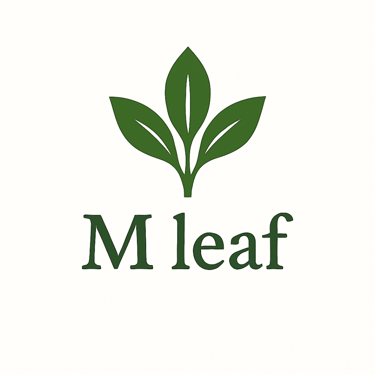Knowledge First: Effective Relief Solutions
Discover how a knowledge-first approach can provide effective relief solutions. Explore innovative strategies and insights to enhance your understanding and implementation of relief methods.
7/26/20255 min read


Understanding the Concept of Knowledge First
The principle of 'Knowledge First' hinges on the idea that acquiring information and grasping a situation precede any form of effective action. This framework posits that informed decision-making is not just a beneficial attribute but a vital necessity in various domains, whether personal, professional, or societal. Knowledge serves as a foundation upon which strategies are developed, risks are assessed, and the potential for relief from challenges is significantly enhanced.
When individuals or organizations confront problems, the initial step involves gathering pertinent data. This active pursuit of knowledge can involve extensive research, consultation with experts, or even reflective practices to understand the nuances of the issue at hand. For instance, in the medical field, physicians often rely on comprehensive diagnoses derived from meticulous examinations and patient histories before deciding on a treatment plan. Here, knowledge acts as a safeguard, increasing the likelihood of favorable outcomes and minimizing adverse effects.
In the business sector, companies that prioritize market research can tailor their products or services more effectively to consumer needs. By understanding market trends and customer preferences, organizations can innovate and optimize their offerings, leading to increased satisfaction and financial success. Evidently, the 'Knowledge First' approach is integral to navigating complexities and crafting solutions tailored to specific contexts.
Furthermore, in education, students who engage deeply with the subject matter before attempting to solve problems demonstrate greater analytical and critical thinking skills. This intellectual grounding not only boosts academic performance but also equips learners with the tools necessary for real-world applications. As seen in these examples across various fields, prioritizing knowledge acquisition ultimately drives success, enhances problem-solving abilities, and, crucially, fosters relief from the myriad challenges encountered in diverse settings.
The Importance of Context in Gaining Knowledge
Understanding knowledge is not merely an intellectual exercise; it is deeply intertwined with the context in which it is acquired. Context encompasses various factors, including situational backgrounds, cultural influences, and specific circumstances surrounding the information. Each of these elements plays a crucial role in shaping how we perceive, interpret, and ultimately apply knowledge, especially in the realm of relief strategies.
For instance, consider a case study involving disaster relief efforts after a natural calamity. The success of these initiatives often hinges on the local cultural context. In regions where communities rely heavily on communal decision-making, top-down directives from external agencies may not yield the desired results. Instead, involving local leaders in the planning and implementation phases can significantly enhance the effectiveness of relief efforts. This illustrates that knowledge gained without understanding the situational context can lead to misalignment and ineffective solutions.
Moreover, cultural factors significantly influence knowledge acquisition. For example, a tradition that values oral history will prioritize storytelling as a medium of knowledge transfer. In this context, written reports may not be as effective, as they do not resonate with the community. Neglecting these contextual nuances can lead to significant misunderstandings and hinder the effectiveness of knowledge dissemination.
Furthermore, the specific circumstances surrounding knowledge collection can affect outcomes. Consider a healthcare program aimed at managing a disease in urban versus rural settings. The urban context may involve access to advanced medical facilities and diverse cultural perspectives, whereas the rural context might be characterized by limited resources and different health beliefs. Knowledge gained in one context may not translate effectively to another without a thorough understanding of the varying situations involved.
In summary, the significance of context in gaining knowledge cannot be overstated. It informs our perceptions and responses toward relief strategies and highlights the need for context-aware approaches in knowledge acquisition and application.
Applying Knowledge to Find Relief: Strategies and Techniques
Effective application of knowledge for relief requires a structured approach that encompasses analytical methods, critical thinking, and collaborative efforts. One crucial strategy is the use of data analysis techniques to evaluate situations systematically. By collecting and assessing relevant data, individuals and organizations can identify patterns and trends, facilitating informed decision-making. For instance, utilizing quantitative analysis allows stakeholders to gauge the extent of a problem and determine the most pressing areas needing attention.
Another essential approach involves critical thinking, which encourages the questioning of assumptions and prompts a deeper exploration of underlying issues. Through methods like the Socratic questioning technique, individuals can scrutinize their thought processes, unravel complex problems, and generate innovative solutions. This method fosters an environment where multiple perspectives are considered, ultimately leading to more comprehensive and sustainable relief measures.
Collaboration plays an equally important role in transforming knowledge into actionable solutions. Engaging diverse teams allows for a rich exchange of ideas and expertise. Workshops and brainstorming sessions can serve as platforms for idea-sharing, ensuring that the collective knowledge of the group is utilized efficiently. Additionally, technology plays a pivotal role in facilitating collaboration. Tools such as project management software and communication platforms enable seamless interaction among team members, regardless of geographical barriers.
Moreover, several resources exist to assist in the application of knowledge for relief. Knowledge management systems, for instance, facilitate access to relevant information and best practices, making it easier for organizations to implement effective strategies. Training programs and online courses can also enhance individual capabilities, equipping them with the necessary skills to contribute meaningfully to relief efforts. Through the combination of analytical methods, critical thinking, and collaboration, knowledge can be effectively harnessed to create impactful solutions that address pressing challenges.
Looking Through Our Lens: Perspectives on Knowledge and Relief
Understanding the interplay between knowledge and relief requires a multifaceted approach, as the experiences and opinions of individuals shape our comprehension of both concepts. Knowledge serves not just as an academic exercise; it also possesses practical implications in our daily endeavors. When we seek relief, be it from stress, pain, or emotional burdens, the insights gained through diverse perspectives can illuminate pathways toward effective solutions. The act of sharing personal anecdotes often opens doors to innovative ideas that may otherwise remain unexplored.
Consider a student who faces academic stress. For this individual, knowledge acquired from textbooks is essential; however, personal reflections from peers about stress management techniques may prove to be equally beneficial. Such discussions nurture a culture of shared learning where collective experiences foster relief strategies that are tailored to various needs. This dynamic nature of knowledge encourages individuals to rethink conventional relief approaches through the lenses of their communities.
Testimonials from diverse demographics reveal an array of ways in which knowledge contributes to relief. For instance, a healthcare professional may advocate for specific treatments based on clinical research, while a holistic healer might underscore the importance of mindfulness based on personal journeys. These contrasting viewpoints do not negate each other; rather, they coexist to form a more comprehensive understanding of relief. Such varied perspectives encourage individuals to approach challenges from multiple angles, prompting a re-evaluation of how relief can be effectively attained through informed decision-making.
Therefore, embracing a spectrum of viewpoints enriches our insights into knowledge and relief. By valuing the lessons learned from others and applying them to our own contexts, we pave the way for a more inclusive approach to addressing life's challenges. In turn, this empowers us to cultivate resilience and adaptability amid uncertainties, ultimately leading to enhanced well-being.
Wellness
Experience vitality with our natural herbal solutions—crafted to boost immunity, detoxify, and energize. Pure, plant-based wellness for everyday health, rooted in Ayurvedic tradition.
Contact us
support@mleaf.co.in
+91-9911382286
© 2025. All rights reserved.
